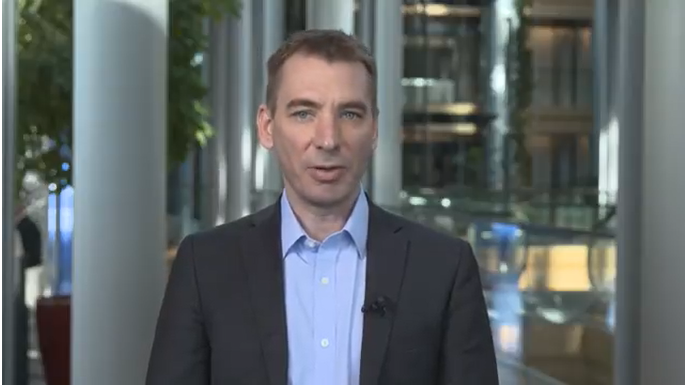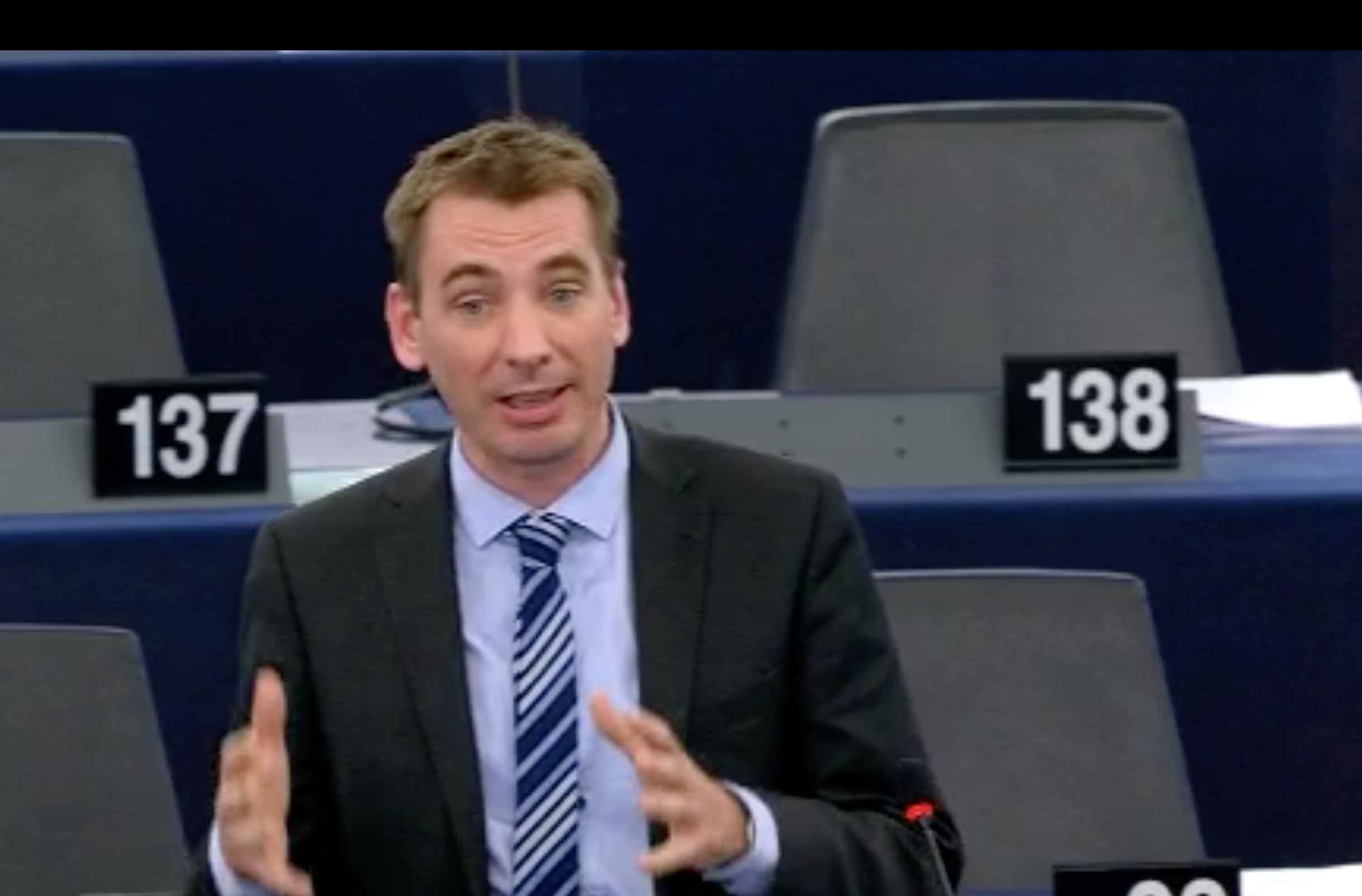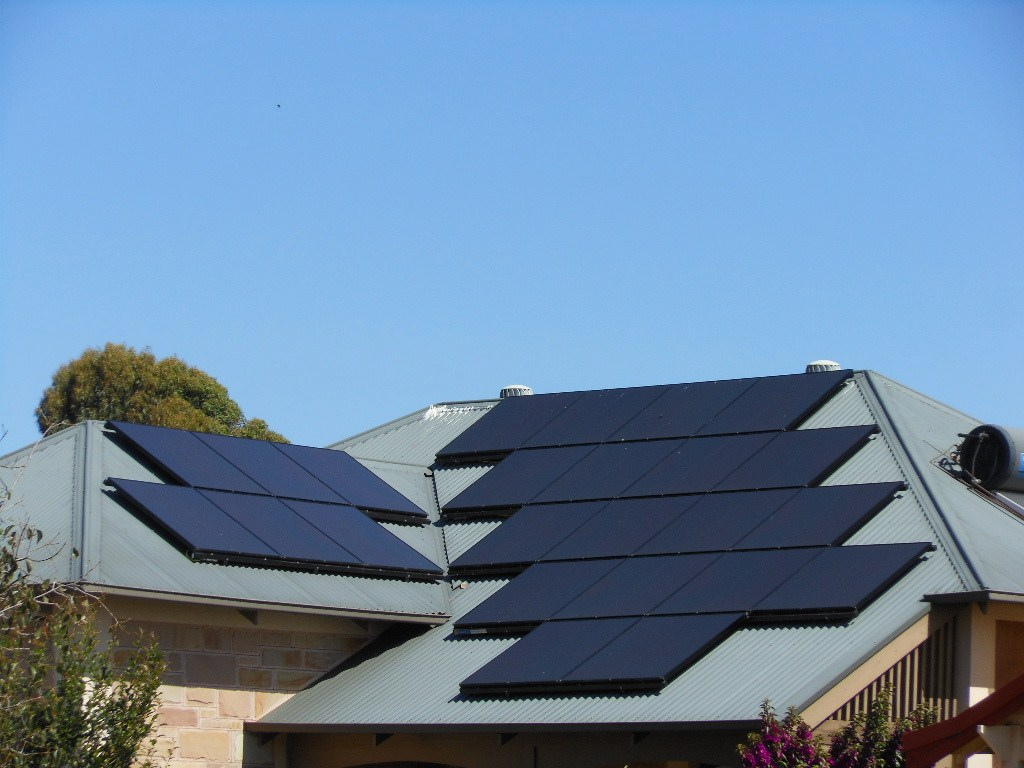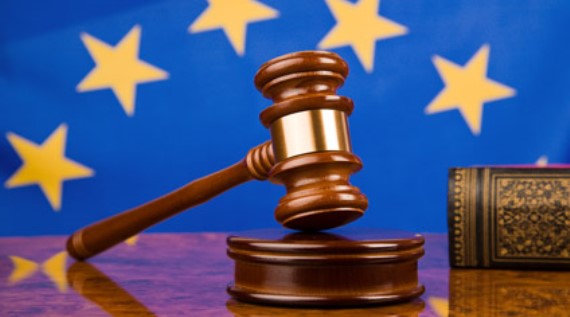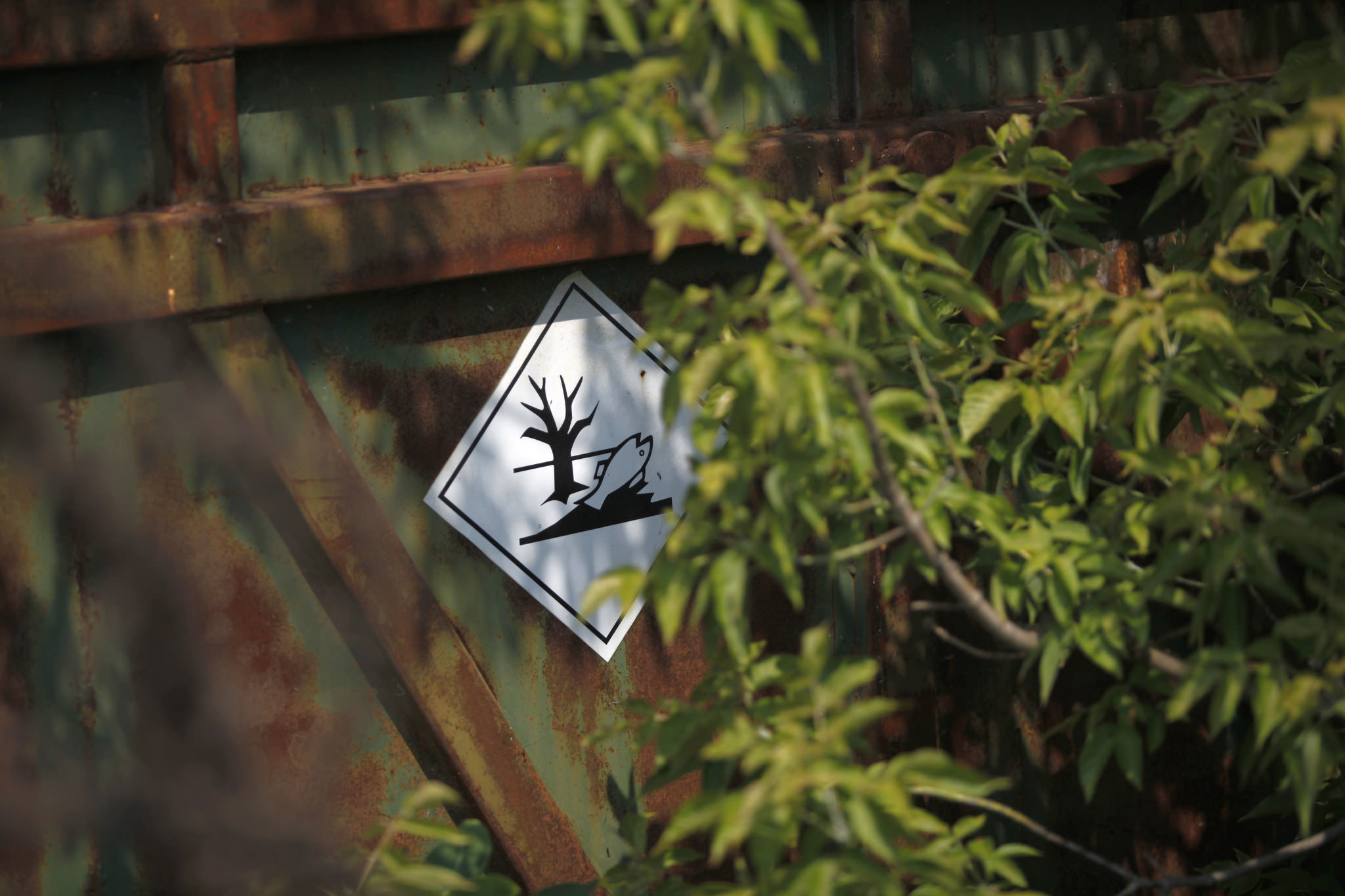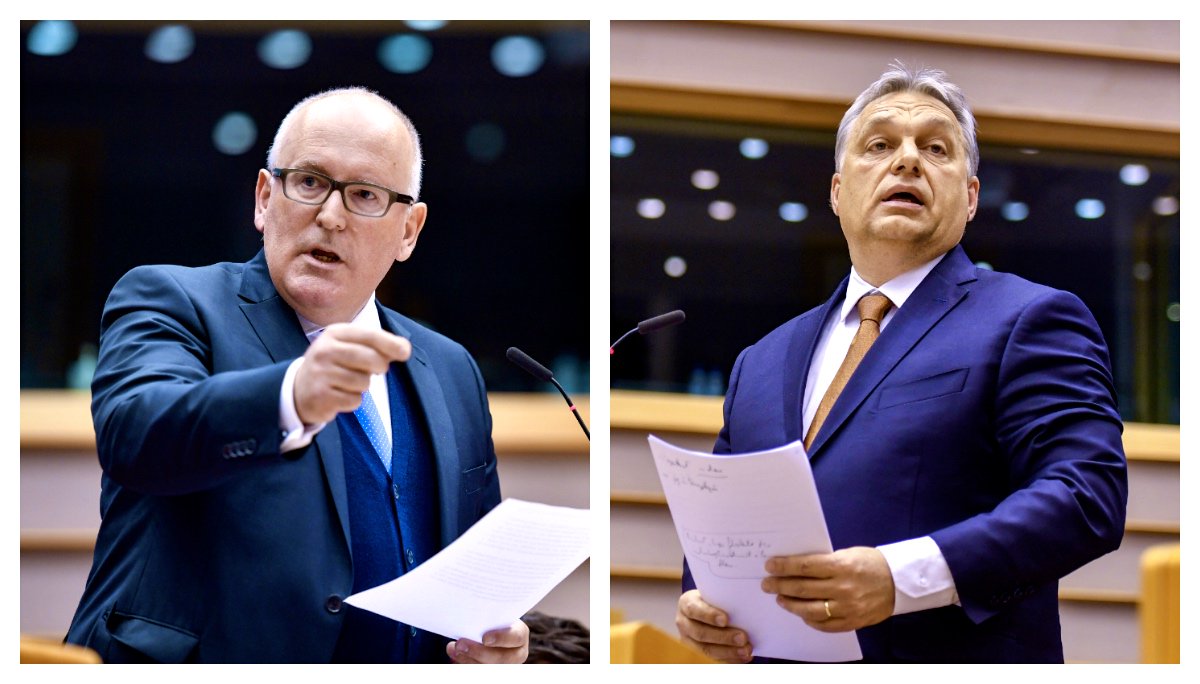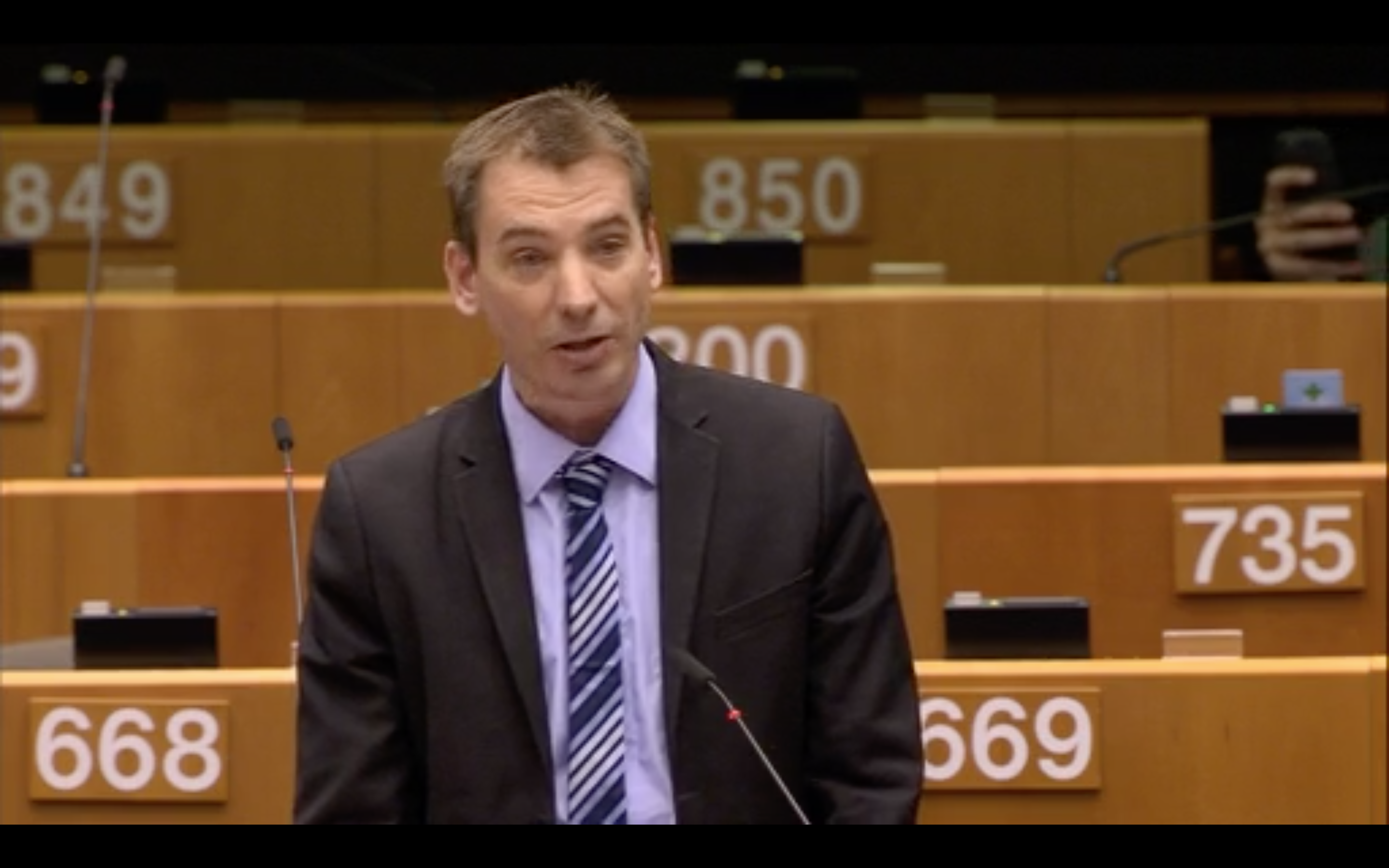Author: pmadmin
“A decision as important for Europe as it is for Hungary” – Benedek Jávor on the Sargentini Report
Interview On 12 September the European Parliament voted in favour of starting procedures against the Hungarian government for breaching European values. The report on the state of the rule of law, democracy and fundamental rights in Hungary was prepared by Greens/EFA rapporteur Judith Sargentini in the Committee on Civil Liberties, Justice and Home Affairs (LIBE). We asked Hungarian MEP Benedek Jávor (Greens/ EFA) how he evaluates the outcomes of the vote. The interview was conducted by Zsófia Deák from the Prague Office of the Heinrich Böll Foundation.
20. September 2018 by Benedek Jávor, Zsófia Deák

Many MEPs have turned away from Viktor Orbán even within his own political group, the EPP, since May 2017, when the state of democracy in Hungary was discussed at the European Parliament and when the LIBE committee was mandated to draw up the report. How do you evaluate the results of Wednesday’s vote on the Sargentini Report?
Since May 2017 the Hungarian Government’s actions have proved again and again what their attitude is towards democratic institutions, the media, and the rule of law. The situation has been deteriorating since that time, and EPP members could not pretend they did not know what was going on in Budapest. This is a very important, positive outcome, as the overwhelming majority of the European Parliament agrees there are serious problems in Hungary. It became clear that Orbán politically is closer to the far-right parties than to mainstream Christian Democrats. With this vote he has lost the battle to dominate the EPP: European conservatives are not ready for an ‘Orbanification’ of their political group. Now the Hungarian prime minister will most probably turn to his plan B, which is to bring eurosceptic far-right forces together into a political group at the EP. If so, he will soon have to recognize, however, what the difference is between enjoying the protection of the biggest political group in the EP versus the protection of a marginalized, extremist minority alliance.
What were your impressions after the debate on Tuesday that preceded the vote? How do you evaluate Orbán’s speech and the reactions he received during the debate?
Orbán had the chance to choose a more compromise-seeking position with the EPP and with the EP in general, but in the end he decided to be more confrontational. He was not even trying to convince the EPP and the Plenary to support him, his speech and rhetoric was addressed to his own domestic supporters. It was also a crucial point that Manfred Weber, the chair of the EPP group, decided to speak up in this conflict. It is hard to say whether the EPP had ever proposed a compromise or whether it was already too late by now, but the result is clear: Orbán is in the minority. This became visible at the plenary, but the decision had been made earlier. By the time the speakers entered the room, the battle was already over. Both Orbán and Weber knew there would be no compromise, and they spoke according to that knowledge.
How were the final results communicated in Hungary by the Government and the opposition?
The Government presented it as an attack on the Hungarian nation. They did not even try to defend their position, they wanted to present themselves as victims of an unfair attack organised by a putative internationalist, pro-immigration conspiracy revenging itself against Hungary for allegedly having blocked their efforts to change the population of the continent. George Soros was mentioned there as well, of course. However, I felt there was a bit of confusion, a lack of strength, and some self-repetition in the governmental communication.
Most of the opposition parties welcomed the decision and evaluated it as a great success, underlining that the report criticizes the Government and not the country or the people, and emphasizing that actually the EP defends the fundamental rights of Hungarian citizens against their own Government. In fact, the vote is the first defeat for Orbán for a long time, and this generates a new political momentum in the country. There were calls for the resignation of the whole Government, and rallies were launched for the weekend. However, there were actually some opposition MEPs who voted against the report or who did not cast their votes, mostly from the far-right Jobbik party but most disappointingly also from LMP, one of the Hungarian green parties which has drifted to the right and closer to the Government in the last few years.
How was the vote received by the state media and independent outlets?
Government propaganda- quite predictably- tried to present the whole report as an attack against the Hungarian nation, and they mostly claimed it was revenge because for Hungary’s anti-immigration policies. The Government-controlled news outlets were keen on presenting people from all over Europe who had “stood up for Hungary”. In this alternative reality, the governmental media reported that Orbán had received an immense outpouring of support from the European public for his fight against European elites and institutions. The evidence provided of that was a couple of sporadic Facebook comments from Orbán’s own website, which were then published in each and every governmental media outlet. The very few remaining independent outlets followed the whole debate and the votes very closely, and there were quite high numbers of analyses published. After the vote they followed the Government’s reactions and made it very clear when the Government propaganda was full of false statements. They also analysed in detail the possible political consequences of the vote, which might have more of an effect than the practical legal procedure will, for the moment.
What do you expect – how will the EP decision to pass the Sargentini Report influence the politics of Orbán in the near future, taking into consideration the approaching EP elections?
Earlier on Orbán’s main goal was to push the whole EPP into a more far-right position. He did not succeed. His former allies within the EPP (such as the CDU or the Austrian ÖVP, for example) decided to vote in favour of the Sargentini Report. Therefore it is clear now that his only allies are the eurosceptic, mostly openly racist, far-right parties. That is the only direction he can move in, and this will hugely influence his strategy for the EP elections. However, it does not seem likely that any new kind of far right EP group would ever gain as much influence as the EPP has now.
What does this vote mean for Hungary and the EU in the long run?
This vote was only one step in a longer process and now the discussion will proceed in the Council. However, it will not be much easier for Orbán to convince the other governments there, either. He has very few allies. The end of the process, in theory, could lead to certain sanctions against Hungary, but which sanctions would be possible is also not yet clarified. On the other hand, in the next multiannual financial framework (MFF) the Commission has proposed the option of freezing payments of EU funds in cases involving serious corruption issues (under the so-called rule of law procedure). So there might be a possibility to practically impose sanctions on Hungary even without a Council decision on the Article 7 procedure.
This decision was at least as important for Europe as it was for Hungary, though. Now it has been proved that the EU is able and ready to stand up for its fundamental rights and values, and not only when it comes to breaches of competition law, the single market rules, or state budget deficit targets. It was an important test.
Letter to Commissioner Vella asking for a proposal for an Ivory Ban
Commissioner Vella
Environment, Maritime Affairs and Fisheries
European Commission
Berlaymont
Rue de la Loi 200
1000 – Brussels
Brussels, 2 May 2018
On a Proposal for an Ivory Ban
Dear Commissioner Vella,
We are turning to you to draw your attention to the growing concern related to ivory trading. Since the implementation in EU law of CITES in 2015, the trade in ivory has somewhat diminished. However, elephant and rhino species continue to be in serious danger, as the level of poaching remains high. This situation is exacerbated by the fact that international criminal organisations have found in wildlife trafficking a lucrative business, as the risk of getting caught and the consequent penalties are relatively low and the economical return is significantly higher. The shared feeling is that, despite the actions taken in the past, this still represents a huge concern and that only a tough measure would help eradicating this practice.
Given these considerations, we feel that the time is ripe for the next step from the Commission: a proposal on total ban on ivory import/trade. The Parliament has been advocating for such a ban for a long time, most recently in the resolution on „EU action plan against wildlife trafficking” voted with a large majority on 24 November 2016. Moreover, the issue was raised during the last informal ENVI council on the 5th March 2018 and the report on the outcome of the discussions seems to suggest an a priori openness from the Council also.
The EU should pave the way for other countries to follow as it did so many times before and we count on your leadership on this issue.
We are looking forward to working with you on this matter and to promptly ensure the welfare and conservation of the affected species.
Yours sincerely,
Benedek Jávor and Catherine Bearder
MEPs for Wildlife
Co-signatures:
ADINOLFI Isabella (EFDD)
AFFRONTE Marco (Greens/EFA)
ALBIOL GUZMAN Marina (GUE/NGL)
ANDERSON Martina (GUE/NGL)
ANDERSSON Max (Greens/EFA)
ARIMONT Pascal (EPP)
AUSTREVICIUS Petras (ALDE)
BACH Georges (EPP)
BILBAO BARANDICA Izaskun (ALDE)
BOYLAN Lynn (GUE/NGL)
BRANNEN Paul (S&D)
CARTHY Matt (GUE/NGL)
CASA David (EPP)
CASTALDO Fabio Massimo (EFDD)
CHRYSOGONOS Kostas (GUE/NGL)
COUSO PERMUY Javier (GUE/NGL)
CRAMER Michael (Greens/EFA)
CSÁKY Pál (EPP)
DATI Rachida (EPP)
DE MONTE Isabella (S&D)
DURAND Pascal (Greens/EFA)
FLACK John (ECR)
EICKHOUT Bas (Greens/EFA)
ECK Stefan (GUE/NGL)
EPITIDEIOS Georgios (NI)
EVANS Jill (Greens/EFA)
EVI Eleonora (EFDD)
FARIA Jose Inacio (EPP)
FLANAGAN Luke Ming (GUE/NGL)
FOSTER Jacqueline (ECR)
FRUNZULICA Doru (S&D)
GERBRANDY Gerben-Jan (ALDE)
GERINGER DE OEDENBERG Lidia Joanna (S&D)
GILL CBE Neena (S&D)
GODDYN Sylvie (ENF)
GRIESBECK Nathalie (ALDE)
GRIFFIN Theresa (S&D)
HÄUSLING Martin (Greens/EFA)
HAZEKAMP Anja (GUE/NGL)
HOWARTH John (S&D)
JAAKONSAARI Liisa (S&D)
JAMES Diane (NI)
JOLY Gro Eva (Greens/EFA)
KADENBACH Karin (S&D)
KONEČNÁ Kateřina (GUE/NGL)
KYENGE Cécile Kashetu (S&D)
KYLLÖNEN Merja (GUE/NGL)
KYRKOS Miltiadis (S&D)
LALONDE Patricia (ALDE)
LEINEN Jo (S&D)
MARCELLESI Florent (Greens/EFA)
MARTIN David (S&D)
MAYER Alex (S&D)
MCCLARKIN Emma (ECR)
MCINTYRE Anthea (ECR)
MICHEL Louis (ALDE)
MIRANDA Ana (Greens/EFA)
MITROFANOVS Miroslavs (Greens/EFA)
MIZZI Marlene (S&D)
MONTEL Sophie (EFDD)
NAGY József (EPP)
NI RIADA Liadh (GUE/NGL)
OMARJEE Younous (GUE/NGL)
POC Pavel (S&D)
POSPÍŠIL Jiří (EPP)
POST Soraya (S&D)
PIETIKÄINEN Sirpa (EPP)
PUNSET Carolina (ALDE)
RADEV Emil (EPP)
REIMON Michel (Greens/EFA)
RIES Frédérique (ALDE)
ROCHEFORT Robert (ALDE)
RODRIGUES Liliana (S&D)
RODRÍGUEZ-PIÑERO Inmaculada (S&D)
ROPÉ Bronis (Greens/EFA)
SOLTES Igor (Greens/EFA)
SZANYI Tibor (S&D)
TAMBURRANO Dario (EFDD)
TAYLOR Keith (Greens/EFA)
TRÜPEL Helga (Greens/EFA)
UJHELYI István (S&D)
URTASUN Ernest (Greens/EFA)
VAIDERE Inese (EPP)
VAJGL Ivo (ALDE)
VAN BREMPT Kathleen (S&D)
VANA Monika (Greens/EFA)
VAUTMANS Hilde (ALDE)
WARD Julie (S&D)
WISNIEWSKA Jadwiga (ECR)
ZOANĂ Maria Gabriela (S&D)
Photo credits to: http://www.shahrogersphotography.com/detail/1597.html
MEPs resolved to secure laws on media protection
Members of the European Parliament will stop at nothing until EU laws aimed at tackling court cases that intimidate investigative journalists and independent media are introduced, MEP David Casa said yesterday.
The Nationalist MEP gave comments to The Sunday Times of Malta in the wake of calls by a cross-party group of europarliamentarians on Friday, proposing new EU laws to address SLAPPs (strategic lawsuit against public participation).
The group – made up of Mr Casa, Ana Gomes, Monica Macovei, Maite Pagazaurtundúa, Stelios Kouloglou and Benedek Jávor – wants the European Commission to create a directive which would allow journalists and media houses to ask for such suits to be dismissed and seek compensation while also fining companies which dodge the directive by filing SLAPP lawsuits in non-EU jurisdictions.
Read: SLAPP down companies bullying free press, MEPs urge Commission
The MEPs have also asked for the creation of a fund for journalists and media houses fighting such suits and that the Commission names and shames companies which resort to SLAPP tactics.
A call for such anti-SLAPP legislation was also made in the report by MEPs from the Pana and Libe committees, who carried out a two-day fact-finding mission in Malta last year. The report was published last Thursday.
The delegation looked into allegations of maladministration and money laundering in Malta, meeting with the Prime Minister, the Police Commissioner, the Chief Justice, representatives of the Malta Financial Services Authority and Financial Intelligence Analysis Unit, as well as journalists and civil society activists.
According to Mr. Casa, the MEPs will now be waiting for the Commission to respond, pointing out that if there is no action, a number of options were available to them, including making the call on the Commission during plenary.
“But more concretely we could also use a particular mechanism to draft the directive ourselves and send it to the Commission to propose. We can do this under a provision of the Treaty on the Functioning of the European Union.
“What is certain is that we are determined and committed to push for this legislation for as long as necessary,” Mr Casa said.
On the other recommendations in the report – mainly those calling on the European Banking Authority (EBA) and the European Central Bank (ECB) to assess whether the MFSA has fulfilled its obligations and to investigate whether Pilatus Bank holding a licence requires an intervention – Mr Casa said this was a different situation.
While the request to the ECB to take action had originally come from him alone, it was now the European Parliament which was making such calls on both the ECB and the EBA, the MEP explained.
“It should be the MFSA of its own volition that does what should have been done ages ago and revokes Pilatus’ license.
“On my part I will be communicating with the ECB again in the coming week, as I have received further evidence confidentially which needs to be passed on to them,” Mr Casa went on.
On a national level, the report points out that keeping politicians suspected of money laundering in office affects the government’s credibility, fuels a perception of impunity and could result in further damage to State interests by enabling the continuation of criminal activity.
When questioned on Friday about the recommendation to remove those named in the Panama Papers, Prime Minister Joseph Muscat said simply: “We take our decisions”.
He added that the MEPs who travelled to the island on the fact-finding mission had decided what they were going to say even before coming to Malta.
Backtrack in Strasbourg as MEPs Compromise on Energy Efficiency
The European Parliament has abandoned its long-held 40% energy efficiency target at the final hurdle, after political groups opted on Wednesday (17 January) to back a binding 35% goal for 2030 instead.
MEPs decided to choose the safe option and agree on one position ahead of talks with the Commission and member states but it meant downgrading its efficiency ambitions.
But they were able to preserve an all-important energy savings goal of 1.5% under Article 7 of the draft report and include the transport sector for the first time. EU climate chief Miguel Arias Cañete welcomed the result, pledging to help secure an “ambitious agreement” in talks with the member states.
German Socialist MEP Martina Werner said the outcome was “a big disappointment, as the Parliament has given up of its ambitious 40% target for the first time” but was hopeful that the result still shows that the institution is “serious about the energy transition”.
The result is a double-edged sword as it represents two milestones: the Parliament’s first shift to 35% and the EPP group’s first commitment to moving up from its previously rigid 30% position.
Wednesday’s vote was difficult to call before MEPs arrived in the hemicycle as the S&D, helmed by Czech MEP Miroslav Poche, and the EPP, under the guidance of German counterpart Markus Pieper, were unable to compromise on the fundamental aspects of the file.
After the vote, the EPP man was happy that his colleagues had rejected the “out-of-this-world” 40% target and said the agreed text is “a good start” with which to enter trilateral negotiations, an opinion shared by Greens/EFA shadow Jávor Benedek.
The Hungarian MEP called on climate chief Cañete after the vote to support the Parliament’s freshly adopted position and help convince the member states to back “at least” 35%.
@javorbenedek: “@MAC_europa ambitious outcome in the context of the leaked @IPCC_CH report could only mean to endorse the #EPlenary position of at least 35% – negotiations need to take the planet first!”
Poche thanked his colleagues for granting him a “strong mandate” after 485 MEPs voted in favour, with only 132 rejecting the text and 58 abstaining.
Poche, who replaced his predecessor Adam Gierek in December, will now represent the Parliament in the upcoming negotiations, where he will have to convince the member states that they should increase their 30% position.
European Parliament push for clean energy package faces resistance
MEPs agree to increase EU’s renewable and energy efficiency goals but that’s not going to sit well with national governments.
The European Parliament’s evident self-satisfaction over Wednesday’s vote to boost the EU’s green energy ambitions is likely to be punctured in the coming brawl with national governments.
MEPs’ push to speed up the bloc’s transition to clean energy puts it on a collision course with the Council of the EU, where several countries are angry at the possibility of being forced to shoulder an extra, and expensive, burden.
“We are expecting long and tough negotiations,” a Central European diplomat said, adding that the Parliament’s position “is more ambitious and challenging than what we agreed in the Council.”
MEPs said the EU should get 35 percent of its energy from renewable sources by 2030, as well as achieving a minimum 35 percent gain in energy efficiency over the same period. They also agreed on strong rules for ensuring countries are on track to meet their goals.
The votes shape the Parliament’s position on the Renewable Energy Directive, the Energy Efficiency Directive and the Governance Regulation. These are all key files from the European Commission’s Clean Energy Package, which aims to encourage the EU’s uptake of renewable energy and reform of its power market.
But Parliament’s higher targets are a lot more than many EU countries are prepared to accept.
“I expect the negotiations on all files from the Clean Energy Package to be tough,” said Martina Werner, a German MEP from the Socialists and Democrats. “The risk is to end up with the lowest common denominator.”
When EU energy ministers adopted their position in December, they left in place the current 27 percent renewable energy target. In May, when the Commission suggested increasing the target for energy efficiency from 27 percent to 30 percent, the idea ended up getting Council support but several Central and Eastern European countries fought an unsuccessful rearguard action to keep the old level.
Green resistance
National opposition is not too surprising considering the bitter talks over setting the 2030 energy and climate goals in the first place back in 2014. There was strong resistance from several Central and Eastern European countries who felt things were going too far, too fast; many still rely on coal, and were worried about the financial and economic costs of shifting to other power sources in a short period of time.
In the end, EU leaders committed to 27 percent targets for both energy efficiency and renewable energy.
Those promises have to be translated into laws, and now Central Europeans are outraged that Brussels and the Parliament are trying to push beyond the leaders’ 2014 deal by pressing for higher targets in the process.
“The targets are way beyond what is feasible. We cannot come up with commitments like that out of thin air,” said an Eastern European diplomat.
Green energy advocates argue that Central European concerns are outdated.
Renewable energy costs have dropped much faster in recent years than most anticipated, and recent Commission calculations found boosting the bloc’s renewable energy target to 30 percent would cost the EU roughly the same as implementing its current 27 percent goal.
The Commission and especially the Parliament are keen on greater energy ambition amid growing public alarm over global warming, as well as pressure to meet the bloc’s commitments under the 2015 Paris climate agreement.
Climate Action and Energy Commissioner Miguel Arias Cañete gave Parliament a pat on the back after Wednesday’s votes, calling it a “great day.” The Parliament “shows it means business with Europe’s clean energy transition and our #ParisAgreement commitments,” he tweeted.
His sentiment was largely echoed by NGOs and renewable energy lobby groups.
Matching rhetoric
The differences between national positions and the Parliament will be hashed out in upcoming negotiations.
“We are ready to face member states,” said Michèle Rivasi, a French Green MEP who co-led work on the Governance Regulation. “They will have to be more ambitious and they will have to start seeing things as we see them.”
A compromise could see talks settle on a target in between the positions of the Parliament and the Council. With a strong push from the Parliament, more ambitious governments from Nordic and Western European countries could help sway the general consensus toward a middle ground of just over 30 percent — despite Central European grumbling.
“European governments will now be under pressure to match their rhetoric on climate change with action by supporting the Parliament’s position,” Roland Joebstl, policy officer at the European Environmental Bureau.
Inter-institutional talks are expected to start within the next weeks under the leadership of the Bulgarian Council presidency.
This article is part of POLITICO’s new Sustainability coverage, tracking issues including the circular economy, air and water pollution, nature protection and chemicals, and including the Sustainability Insights newsletter every Monday afternoon. Email pro@politico.eu for more information.
Political yet illegal decision on Paks non-tendering infringement
Here below, you can find the documents I received following an access to documents request regarding the documents of the infringement procedure point towards the fact that the European Commission took a political decision in closing the infringement procedure. And this political decision is against EU law.
The infringement that had been initiated following my complaint, was closed on 17th November 2016. The documents clearly show that the initial arguments of the Hungarian party on international agreements and the financial package that would accompany the Russian offer were dismissed by the Commission. Consequently, in the Commission’s view also there should have been an open call for the project.
In the spring of 2016, after the official reply to the letter of formal notice, Hungary made for the first time counter-arguments of technical exclusivity which had also been dismissed on service level initially by the EC and 4 scenarios were envisaged at this stage of which the closure of the case is clearly stated to be a political solution. This option was taken and the Minister for the Prime Minister’s Office personally thanks the Commissioner for their smooth cooperation.
The letter of Alexander Italianer, Secretary-General of the European Commission
LIST OF DOCUMENTS IN CASE 2016/6535
1 Note for the launch of the interservice consultation on the letter of formal notice (LFN) in infringement procedure NIF 2015/4231-4232 concerning the PAKS NPP project, with Annex (draft LFN), dated 10/11/2015, Ref No Ares(2015)4966089 and also this letter
3 Interservice consultation – DG ENER opinion, dated 11/11/2015
The first part of this document
4 Interservice consultation – DG COMP opinion, dated 11/11/2015
The second part of this document
5 Interservice consultation – DG TRADE opinion (with comments to draft LFN in Annex), dated 13/11/2015
The third part of this document and its annex
7 Reply of the Hungarian authorities to the letter of formal notice (with Annexes A and B), dated 21/01/2016, Ref No Ares(2016)358726
11 Flash report on the meeting with Hungarian authorities, dated 02/03/2016, Ref No Ares(2017)495771
24 Note for the launch of the interservice consultation on the closure of infringement procedure NIF 2015/4231-4232 concerning the PAKS NPP project (with Annexes 1 and 2), dated 24/08/2016, Ref No Ares(2016)4766008 and its annex
25 Interservice consultation – DG TRADE comments, dated 26/08/2016
The first part of this document
26 Interservice consultation – DG ENER opinion, dated 30/08/2016
The second part of this document
27 Interservice consultation – DG COMP and DG TRADE opinion, dated 02/09/2016
The third part of this document
28 Day Note of 17 November 2016 (SEC(2016)469/4) concerning the Commission decision closing infringement procedure 2015/4231-32 (with Annex (SEC(2016)475/2)), Ref No Ares(2017)162348 and its annex
Environmental Liability Directive (ELD)
ELD is a key piece of legislation aiming to establish a framework of environmental liability based on the ‘polluter-pays’ principle and to prevent and remedy environmental damage.
Note: The ELD has recently undergone a REFIT evaluation to check whether the legislation is fit for purpose. A (long overdue) implementation report based on Member States reporting has also been published. This provided the basis of the current work of the Parliament. I am providing remarks as rapporteur of the ENVI opinion to the JURI’s work on the implementation report on ELD (ENVI was associated committee under Rule 54)
As both the Commission report and the JURI Committee has highlighted, despite some improvements the directive has shown ‘incompleteness’ and thus limited effectiveness.
The implementation still varies significantly from one Member State to another.
We have a patchwork of liability systems (also due to the interplay with existing laws) which in my opinion can undermine common standards and expose some Member States or regions to greater risk of environmental disasters and the financial consequences thereof.
As it is clear from the ENVI opinion, better implementation of the directive (incl. the via improving the information base and providing more trainings and assistance to MSs a key pillar of the Commission’s action plan and multiannual work programme) is needed, but not sufficient.
We should remaining challenges in a systemic manner and revise the directive in the near future in the light of the recent REFIT exercise.
A revision would allow us to extend the scope and the applicability of the directive by making operators of all activities strictly liable for all environmental damage they cause (=removing the limitation in Annex III).
In this context, the INI report rightly calls on the Commission to impose liability for damage to human health and the environment in the future and for the removal of certain exemptions.
I also welcome the call for rethinking of the financial security system.
This would imply
- (preference for) a high-level, mandatory environmental liability insurance for operators
- differentiated ceilings for activities with different risk factors
- the creation an EU-wide fund to bear the cost of relevant measures beyond the mandatory security (in case of large-scale disasters).
I also stress that the proper involvement of inspection bodies is key. In this context, the Commission should further develop inspection support capacity at EU level and help Member States strengthen their national bodies.
Let me highlight one more message: we urgently need EU legislation on the minimum standards for implementing the Aarhus’ Conventions access to justice pillar.
Letter to Mr. Timmermans on the systemic threat to the rule of law in Hungary
The European Union needs to know that democracy is dismantled under Viktor Orbán’s regime.
Last week the first vice president of the European Commission, Frans Timmermans, addressed the European Parliament’s plenary on the situation of democracy in Hungary. He referred to the core values of the European Union and to the spirit of Article 2 TEU. I welcome the long-awaited committed steps, but it seems that the Commission still has illusions regarding the system of Viktor Orbán.
A couple of weeks ago, commenting on the new legislation targeting the CEU, Mr. Timmermans said there is “not a systemic threat to the rule of law in Hungary.” Therefore, I addressed a letter to the Commission and I summarised the developments of the past seven years in order to reveal how the Hungarian government has been dismantling the rule of law step by step. This list of actions is long and proves that it is more than individual cases. The measures include the adaptation and the continuous amendments of the new Fundamental Law; constant attacks on media pluralism; the limitation of the juridical independence and the stigmatisation of NGOs, which actions are destabilising the very foundations of democracy. The European Commission has to understand that such politeness is unnecessary and only facilitates further decline, harming not only Hungary, but also the European Union as a whole.
I hope that this analysis will help the Commission to admit the systemic threat of rule of law in Hungary
Source of picture: Twitter
Plenary speech of Benedek Jávor on the situation in Hungary

